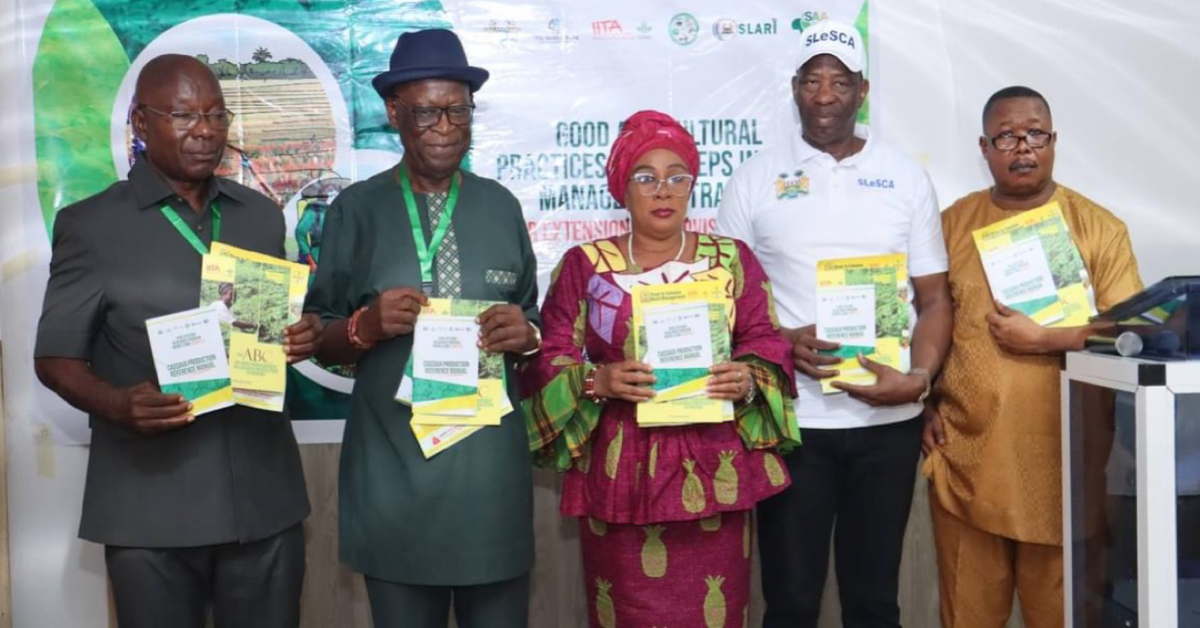Ministry of Agriculture and Food Security, in partnership with the International Institute of Tropical Agriculture (IITA) and the Sierra Leone Agricultural Research Institute (SLARI), has launched an extensive training program under the Feed Salone initiative. The program, which began today at the Bo Inn Hotel, aims to train over 150 extension agents nationwide.
This three-day training session is a key component of the broader Feed Salone strategy and is generously funded by the Food Systems Resilience Programme (FSRP). It focuses on teaching Good Agricultural Practices (GAP) and the Six Steps in Weed Management, aligning with the initiative’s goals of boosting productivity and ensuring food security across Sierra Leone.
The primary goal of this training is to provide extension agents with the essential knowledge, advanced skills, and modern technologies needed to deliver high-quality services to farmers. This initiative is expected to significantly enhance agricultural productivity and secure food resources, which are vital for the country’s development.
The opening day featured inspiring remarks from several distinguished speakers. Dr. Theresa T. Dick, Deputy Minister I of Agriculture and Food Security, highlighted the government’s commitment to agricultural advancement and the critical role of extension agents in achieving this goal. She also praised the organizers for including a substantial number of women and young people in the training, emphasizing the importance of inclusivity in agricultural development.
Dr. Alfred O. Dixon, Country Representative of IITA in Sierra Leone, stressed the importance of the training in boosting the capacity of extension agents and the collaborative efforts between IITA and local institutions. He underscored the crucial role of these agents in spreading advanced agricultural practices and technologies to farmers.
Mr. Moses Senesie, representing the Food Systems Resilience Programme, discussed the integration of resilience strategies within the agricultural sector to address challenges like climate change. He emphasized the need for adaptive approaches to ensure sustainable agricultural growth amidst environmental uncertainties.
Dr. Robert Chakandas, Executive Director of the Sierra Leone Seed Certification Agency, highlighted the importance of certified seeds in increasing crop yields and overall agricultural output. He pointed out that using high-quality seeds is fundamental to achieving the desired productivity levels and ensuring food security.
Professor Friday Ekeleme, an expert from Nigeria, provided valuable insights into advanced weed management techniques and their impact on crop productivity. His session was notably interactive, featuring practical demonstrations that resonated with the participants.
The first day of training was highly engaging, with participants actively involved in discussions and practical sessions. This hands-on approach ensures that extension agents can effectively apply the knowledge and skills they acquire in real-world scenarios.
The Feed Salone initiative, supported by IITA experts from Nigeria, underscores the significance of international collaboration in tackling local agricultural challenges. By empowering extension agents with the necessary tools and knowledge, this program aims to create a ripple effect, leading to better farming practices, higher crop yields, and enhanced food security across Sierra Leone.
As the training continues over the next two days, participants will delve deeper into the complexities of agricultural practices and weed management, preparing them to be agents of change in their communities. This initiative marks a significant step towards a more resilient and productive agricultural sector in Sierra Leone.











